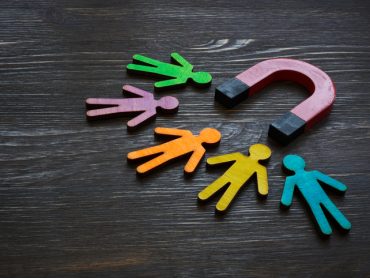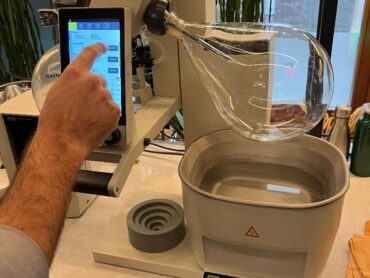Headline: Customized Loyalty for Hotels
Summary: Many hotels are now being outpaced by other large companies in terms of customizing the experience on a consumer-by-consumer basis. Such businesses use specific data collection techniques to generate a superior customer experience, heightening loyalty to the brand as well as triggering a new standard for expectations. Properties need to treat every interaction with their guests as a way to fine-tune their stays – both present and future – so much so that guests become friends of the hotel.
Here’s an easy question: have you ever browsed or purchased from Amazon? If yes, and I’m sure many of you fall into this category, then you are familiar with how well the website will remember your individual tastes. The next time you log on, it’ll offer you specific recommendations built right into the homepage based on what you looked at last. Their e-blasts and each specific product page both work the same way.
Being an Amazon member has its privileges – personal recommendations and special deals being foremost on my mind. Many airlines apply similar principles. For repeat customers, you can get increased mileage accumulation, priority luggage, the ability to reserve seats and reduced fees. All said, their marketing principles are driving loyalty and this loyalty means steady, incremental revenue increases without the heavy costs of seeking new customers eating away at your profit margins. So, what can you apply to your property?
Just as each hotel is unique, each customer is also unique. I wholeheartedly encourage you and other managers to get out on the lobby floor and engage your guests face to face. This is a no brainer. If you really want to know every habitué, however, you better start collecting data. The more data you have for past customers, the better you will meet and exceed their future desires, so much so that you will know a person’s preferences before he or she arrives.
The idea that sparked me to investigate this principle occurred while I was touring Southeast Asia last year. One evening, my wife and I dined at the hotel’s restaurant, casually mentioning that it was our 30th anniversary. After dessert, our waiter presented us with an embossed menu with both of our meals printed on the inside covers. During the ensuring conversation, this staff member also told me that our meal was recorded on computer, so whenever we visited next they could prepare it to the tee.
Imagine how this application of data collection could be applied to the weddings and engagement dinner business. It is very often and quite romantically the case that couples will revisit the restaurant where one of the two fell to a knee and asked the question of all questions. This could well happen at your hotel, and it’d be wise to take note of what each person had so they could relive that moment when they returned. Better yet, tell them that you have their meal on file so they’re more inclined to return. The embossed menu was an astonishing extra and I’m sure you could set up a template for your in-house printers to manage this task. The point here being not only that you demonstrate how much you value guests sharing one of their most intimate moments at your property, but giving them enough reason to talk ecstatically about how much you actually care.
Rest assured, this is not a new concept. When I call to order pizza, I’m first prompted by an automated voice to select whether I want the same order as before, and this system has been in place for years. Mind you, I’m ordering off of a regional call center for a national pizza restaurant chain, but the kernel of the idea remains the same. The automated voice offers me selective deals past on how I’ve ordered in the past, and then allows me to streamline my favorite order, helping reduce their labor costs in the process.
My experience in Asia was simply the flawless execution of this. Imagine if every hotel you stay at remembers all your previous meals at their in-house restaurants? The waiter approaches you with this knowledge, and he or she can already make suggestions more attuned to your individual tastes, whether it be appetizers, mains, desserts or wine pairings. Now picture tablets used in place of menus and the personalized suggestions scrolling along like they appear on Amazon. Then, extend this idea to room service, spa amenities and your reservation system.
The idea here is to use technology to build rapport so that your guests are not just your consumers, but your friends as well. For consumers you ask questions, but for friends you already know the answer. Staying with the topic of food, suppose that a recurrent guest consistently orders the same appetizer or has expressed admiration for the dish. Why not reward such loyalty and show your gratitude by having that appetizer ready and in their room upon arrival? Your friends would remember such minor details about you, so why not a hotel? And this doesn’t just apply to frequently purchased menu items, but also whether a person has specific allergies. If you are allergic to nuts, then wouldn’t you be relieved if you didn’t have to remind the restaurant staff over and over again?
Since returning from Asia, I’ve had many insightful conversations about how hotels are already applying customized loyalty principles to make for better consumer experiences. In particular, when it comes to business trip, consistency in specific necessities is a definite plus, helping bring peace of mind to the wearied traveler who wants everything in order upon arrival. Much like how you can reserve a window seat on an airplane because you don’t want to be disturbed, you should also be able to reserve a room far from the elevator to reduce hallway noise. And the hotel in question, along with its sister properties if it’s a franchise, would be wise to remember and automatically execute this preference for the next time you travel. Even better, book the same room for such a loyal guest, and then offer recommendations on other similar rooms that may be worth trying.
From personal experiences, I’ve noticed that remembering the little details that complete a guest’s experience will not only make their more loyal, but also make them more perceptive to your proffered extensions. Suppose that you are new to Amazon’s services. It is most likely the case that for your first or second purchases, you’ll be ‘testing’ the service’s reliability. Once that trust has been formed, only then will you give serious consideration to some of the marketed items that Amazon displays at checkout or within one of their e-newsletters.
As it concerns hotel e-newsletters, would you deem a golf e-blast to be as efficacious when read by a golf customer or a spa customer? My bet’s on the former, and the only way to discern between the two psychographics is past data on spending habits. Amazon does this expertly with emails and cookie-based browser widgets coded from an individual’s past purchases. “But it doesn’t hurt to advertise with the spa customers,” shouts the skeptical hotelier. This is a double-edged sword. True, targeting spa people will raise awareness for your golf program and compel a few to spend. But, it might also compel them to ignore future e-newsletters as there’s no personal value, so much so that when a spa-specific advertisement comes their way, it’s already in the trash.
Taking another look at airlines and how they treat their loyal customers, there are many other cross comparisons for hotels. Instead of increased mileage accumulation, how about increased complimentary F&B rewards? Priority luggage equates to priority check-in and check-out. Waived baggage fees or service charges should hopefully get you thinking about waived Internet fees or free spa treatments or rounds of golf. How about a dedicated phone line for specific services or for catered offers to certain classes of guests? Use your imagination.
What I’m proposing for hotels goes well beyond loyalty reward programs or wish list programs. It’s a full shift in mentality towards valuing everyone as having elite status, or at least the potential of rapidly becoming a loyal, elite guest. What this requires is lots of questioning and note taking when it’s a guest’s first time with you. For instance, motivate them to complete an online survey prior to arrival so you have a better idea (and a record) of what they want. Also keep in mind that people hate being over-questioned to the point of interrogation, so counter this by explaining your long-term motivations and how much you value personal preferences.
Obviously with all this data collection comes a need for lengthy software upgrades. I don’t want to get into semantics about how dollars and time spent on software will translate into heightened loyalty. The fact remains that return guests are cheaper than new guests, so augmented data collection systems will help you maintain your current clientele and get them talking about how much they are valued, continuing the marketing efforts for new consumers on your behalf. Treat customers like friends and the sky’s the limit.



